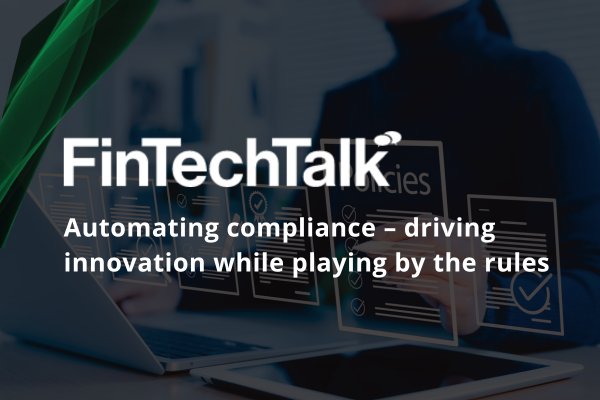FinTechTalk: The Fraud Experience: A Key Banking Relationship Differentiator
On 14 October 2025, FinTechTalk host Charles Orton-Jones was joined by Ron Shevlin, Chief Research Officer, Cornerstone; and Ryan Sorrels, Chief Revenue Officer, Quavo.
Views on news
The Fraud Experience: A Key Banking Relationship Differentiator, a new report, explores the fraud experiences of 2,000 U.S. consumers and highlights how fraud resolution is a critical driver of trust, card usage and long-term banking relationships. While most industry research focuses on fraud prevention, this study is the first to quantify the impact of the resolution experience itself. The survey explores the impact experiencing fraud and different standards of fraud resolution can have on customer trust and loyalty. Factors determining the fraud resolution experience include the speed of the process, the quality of communication and whether the case eventually got resolved.
Fraud detection in real-time payments
Although different metrics have been extensively used to measure the standard of fraud resolution processes, there has been no study so far focussing on the experience from the customer/ cardholder perspective. Cornerstone Advisors have developed a framework that can be used to benchmark fraud experiences with different financial institutions. The research has shown that there is a strong correlation between how fraud resolution experience transpires and the future relationship with the cardholder who fell victim to fraud.
The study first examined the process – whether the cardholder or the card issuer identified the fraud, whether provisional credit was provided, as well as the investigation and the quality of communication during the whole process. Cardholders had the biggest concerns about the provisional credit and the investigation and data collection processes Many experienced a black box effect, where they didn’t get informed about what was happening or the timeframe – there is a general absence of portals where customers could log in and check where their case stands. The study provides a ranking of the major card issuers. While it reveals a good average performance across the sector, a third of community banks clients gave the lowest scores (D or F) for their fraud resolution processes (the same figure was 10 per cent for American Express on top of the chart). Automation can be a great tool for card issuers to improve their performance on providing provisional credit and investigation – the two most underperforming areas, which could free up workforce to do more high-value workflows. This could in the long term lead to the end-to-end automation of the whole resolution process. The cost card issuers must pay for not embracing automation include not only the expenses of fraud resolution but the deterioration of the relationship with customers. Typically, about 40 per cent of dispute processes are automated currently.
The panellists’ insights
- Financial institutions can use the Cornerstone framework to benchmark themselves.
- 80% per cent of consumers who had an A experience see an increased likelihood of buying more services and products from the same car issuer.
- Paradoxically, the increasing volume of payment fraud gives banks more opportunities to shine – while, naturally, they need to improve their fraud prevention efforts as well.
- Any process a company takes on should be configurable to its particular needs.

Business Reporter Team
Most Viewed
Winston House, 3rd Floor, Units 306-309, 2-4 Dollis Park, London, N3 1HF
23-29 Hendon Lane, London, N3 1RT
020 8349 4363
© 2025, Lyonsdown Limited. Business Reporter® is a registered trademark of Lyonsdown Ltd. VAT registration number: 830519543





